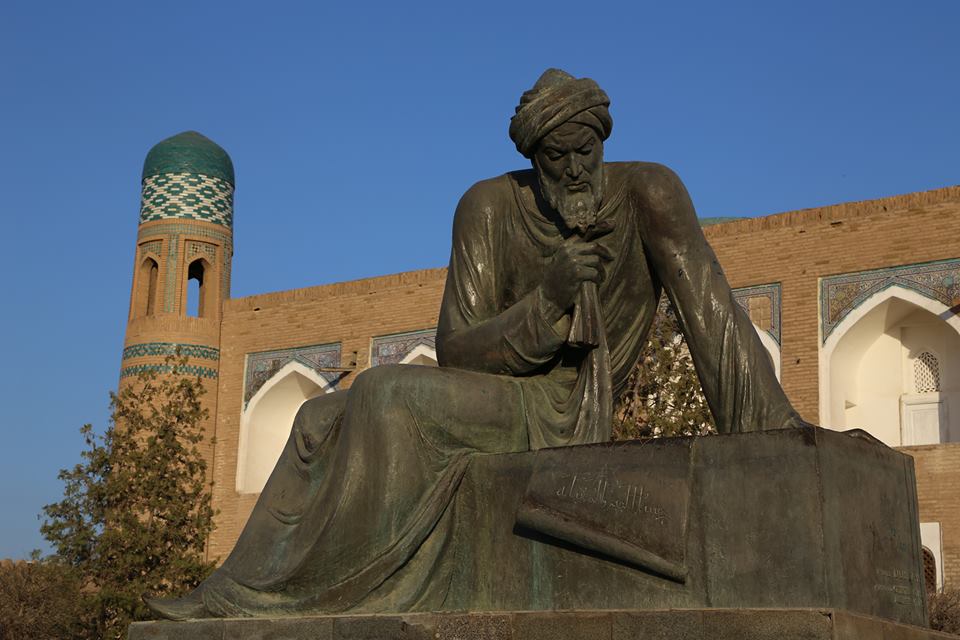|
Muhammad ibn Musa Khwarizmi was an Iranian mathematician, astronomer, astrologer and geographer. We don’t know much about his early life, though it has been said that he was born in 780 A.D. in Khorasan, right on the legendary ancient Silk Road between China and Rome. Al-Mamun—the son of the legendary Harun al-Rashid, who was made famous in the story of the Arabian Nights—created the House of Wisdom in Baghdad as a scientific research academy. It had a large and rich library and distinguished scholars of all faiths were invited to work there. Khwarizmi is one of the greatest scientific minds of the medieval period and the most important Muslim mathematician. He is called the “Father of Algebra.” Though the ancient Greek philosopher, Diophantus, is sometimes also called the “Father of Algebra,” scholars believe that the title more appropriately belongs to Khwarizmi. His work translated into Latin in the 12th century is largely concerned with methods of solving practical computational problems. It is a compilation of rules and demonstrations for finding solutions of linear and quadratic equations based on geometric arguments. Its systematic demonstrative approach distinguishes it from earlier works. Elements within the work can be traced from Babylonian mathematics of 2nd BCE through Hellenistic, Hebrew and Hindu treatises. Khwarizmi introduced Hindu-Arabic numerals to the world and compiled a set of astronomical tables based on Hindu and Greek sources. An Andalusian revision of this work was also translated into Latin. For 700 years after his death European mathematicians cited him in their works, referring to him with his Latinized name “Algorismi.” The modern word for algorithm, which is a complex mathematical formula is derived from his Latinized name and he has sometimes been called the grandfather of computer science. --------------------------------------------------------------------------------
Sources:
Comments are closed.
|
Details
AuthorSaghi (Sasha) Archives
May 2019
Categories |

 RSS Feed
RSS Feed